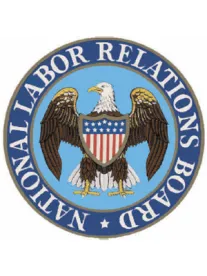On Dec. 1, 2017, new National Labor Relations Board (NLRB) General Counsel Peter Robb issued a sweeping memo identifying various changes for the way his office may be handling a variety of issues before the board. The memo is jam-packed with many interesting points, but there are two critical ones that may immediately affect unfair labor practice charge investigations and litigation.
The first change deals with the NLRB’s “deferral policy.” For decades, the NLRB favored “deferring” unfair labor practice disputes between unions and employers to the parties’ agreed-to arbitration procedure in their labor agreements, particularly when those disputes involved interpreting terms of the agreement. This promoted administrative efficiencies for the agency and also gave effect to the dispute-resolution system assented to by the parties. In 2012, however, the NLRB’s General Counsel at that time issued a memo and stated the agency was seeking to add limitations on the certain issues able to be deferred. The NLRB adopted the former General Counsel’s position in 2014 (i.e., a more restrictive deferral policy was put in place).
Robb’s Dec. 1 memo withdraws the former 2012 memo of his predecessor, signaling that the more liberal deferral policy may be reinstituted. Until the full board weighs in on the deferral standard in a new case, Robb’s Dec. 1 memo may be helpful to cite in any deferral requests in the interim to the extent arbitration is the preferred forum of an employer for the underlying dispute.
Second, in 2011, the NLRB’s General Counsel office effectively mandated via another memo that all NLRB settlement agreements include “default” language that states if a charged party (charged parties almost always are employers) violates any terms of the settlement agreement, then the party will consent to a default judgment related to the underlying allegations being entered against it. This has been an onerous requirement, and employers have had to agree to the language in virtually every settled case in recent years. Robb’s memo rescinds that 2011 directive, signaling that default language likely is not required to be included in all settlement agreements going forward. This potentially removes a major roadblock to settling NLRB charges.
These are two potentially huge, favorable developments for any company facing unfair labor practice charges. Accordingly, the memo is worth reviewing to evaluate whether it can be helpful in the defense of any pending or future cases.
Many changes were afoot at the NLRB at the end of last year. If past is prologue, the NLRB should be very interesting to watch in 2018. Stay tuned.




 />i
/>i

